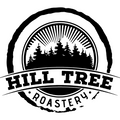When you think about making coffee at home, most people don't grind there coffee fresh before starting the brew process and they don’t know how or why it would make a difference to do so. This is a commonly over looked process.
Grinding right before you make your cup of coffee makes such a huge difference in the taste and longevity of the grounds. This has a lot to do with the degassing of the bean, releasing CO2 and the natural oils drying out taking the flavor with it as it goes. Coffee will go though so many chemical changes from the time your coffee was roasted until you are taking your first drink. When the coffee beans get ground for brewing they immediately start to releasing CO2 which leads to drying out and that leads to bitter, flavorless coffee. To make sure you can save on those precious beans from going bad, there are a couple of things you need to consider.
1. Always store your beans in an air tight container that are darkened ( like amber colored glass or stored in a dark )
2. If you are pre-grinding your coffee try to use it within a 24 hour window. It is best from the time you grind it to 24 hour time frame.
3. Consider the place you store the container. Light and humidity are not coffees best friends.
NOW IT’S TIME TO INVEST IN A GRINDER
There are many different styles and prices out on the market to use for grinding. What should i look into when picking out my first coffee grinder? The first thing i would like to add is make sure to get a BURR grinder, its blade system insures for a really close grind for a accurate grind for the brew method which you choose. Below is a list of the different types of grind settings you can use with your grinder.
Extra Coarse Grind
Grind contains large particles, but beans are still thoroughly broken up. Slightly larger than kosher salt.
• Cold Brewing, like the Toddy

Coarse Grind
Grind contains distinct particles. Similar to kosher salt used for canning and pickling. Most commonly used for the French Press Coffee.
• French Press
• Cupping
Medium-Coarse Grind
Gritty, but no slivers of grinds. Similar to coarse sand. Flat-bottomed filters, namely automatic coffee makers.
• Cafe Solo Brewer
• Mr Coffee
Medium Grind
Feels slightly smooth when rubbed between thumb and finger. Slightly smaller particles than table salt.
• Chemex brewer
• Drip Pots (like Bunn, Newco, Fetco)
• Vacuum Pots
• Siphon Brewers
Fine Grind
Smooth, but can still feel individual grains. Finer than sugar but not quite a powder.
• Espresso
• Stovetop Espresso/ Moka Pot
Extra Fine Grind
Cannot feel individual grains. Powdered sugar or flour consistency.
• Turkish Coffee (Ibrik)
Wrapping This Up
The process of grinding coffee is the hear of the craft of brewing an amazing cup of coffee. Next time you are getting ready to grind your Hill Tree Roastery beans, think about what type of coffee you are looking to brew and grind to suit. Understanding the grind will help you get the perfect taste for your next cup of Hill Tree Roastery coffee!
Alek Dailey
Founder - Hill Tree Roastery






